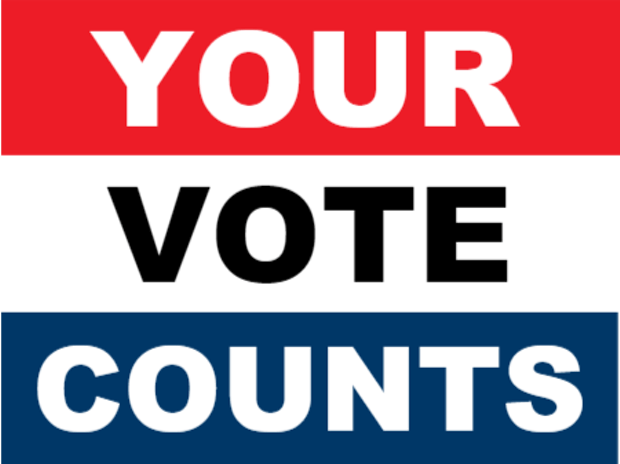News & Articles
Browse all content by date.

“...If changes are to come, there are things that must be done...” From the song “Somewhere to Begin” by T.R. Richie
“...if people are paying attention, then we get good government and good leadership. And when we get lazy, as a democracy....then it results in bad government and politics.” President Barack Obama
In the last column I talked about the importance of people getting involved in politics and the upcoming elections. Responsible democratic government depends on citizen participation. This article talks about specific ways everyone can help despite the pandemic limiting the usual volunteer activities.
This year we must elect competent leaders who care about people and the issues that actually matter to most people. We can not endure four more years of the currant disastrous administration. We can not continue to ignore – or exacerbate – the pan-demic, racial divisions, increasing inequality, economic problems, en-vironmental destruction, and other disastrous policies of the last three and a half years.
What can one person do?
A few years ago an investment firm had a TV ad claiming they created wealth “the old fashioned way – one investor at a time.”
I believe we can change things one voter at a time. The best thing anyone can do is to talk to their friends, family and acquaintances and get them to vote. This is not just my opinion. It is a proven method developed by the Organizing Empowerment Project. You can learn more about it with a short video at organizingempowerment.org.
This method spreads common sense, personal politics like a pandemic virus. The COVID-19 virus spreads from one person to two others, who then infect four others, who infect eight, and the process snowballs. When exponential growth turns an outbreak of disease into a pandemic it is not good.
But infecting others with a sense of social responsibility and civic duty is good for our democracy and the well being of all of us.
Talking to your friends, neighbors, and family about voting can do a better job of getting-out-the-vote than the usual door knocking and phone banking. This is not about arguing politics or confronting the hard core opposition.
Rather it is a proven program of simply sharing your concerns, values, and reasons for voting with people you know. The fancy term for this is Relational Voter Organizing.
Relational Organizing teaches people to reach out to their friends and family to share personal stories around the issues that matter most to them. People are more likely to trust information from people they know and respect. They are more likely to listen and to act on that information.
This involves listening to the views and concerns of the other person and sharing your own views and concerns. It is a non-threatening, non-argumentative conversation and not political proselytizing.
Contrary to conventional wisdom, you can have these discussions in polite company!
Many organizations are adopting this program for recruiting new members, for specific issue campaigns, and for getting people to register and vote. Several organizations offer online training on using this method to talk more effectively with others.
Minnesota Interfaith Power and Light, as part of their Climate Voter Campaign, has several webinars in July and August on Relational Organizing. Sign their Pledge to be a Climate Justice Voter.
Wisconsin League of Conservation Voters uses Virtual Volunteers to do phone banking, text banking, social media outreach and relational voter organizing to advocate for clean water and clean energy. They will have training sessions in July and August.
Of course, there are many opportunities to volunteer. Many organizations, including the political parties and labor unions, are doing things differently because of the pandemic. They’re using social media, texting, cell phone apps and personal letters to reach voters. Here are some examples of campaigns I know about. Probably organizations you belong to are doing something similar. They all need volunteers!
The good news is you can do things from home, on your schedule, and as much or little as you have time to contribute.
Sierra Club Independent Action is working to to elect “leaders who will put our communities and our climate ahead of special interests and big polluters.” They have an at-home program to call, text, or write letters to likely conservation voters. There are people in Duluth actively doing this to get more people to vote.
Public Citizen is working to ensure safe, accessible, and fair elections this fall with their Democracy Defenders campaign. Volunteers are working to end the flood of corporate money affecting elections, opposing the right wing’s un-American assault on voting rights, and seeking to expand voting by mail so everyone can vote and have their vote counted.
Vote Forward is helping people to write personalized letters to encourage people to vote. You can work from home and write to people in your state.
Indivisible (indivisible.org) is a grassroots movement of thousands of local people working to elect progressive leaders, rebuild our democracy, and defeat the Trump agenda. They are active in the Duluth area.
You may think your vote doesn’t count and there is nothing you can do to make a difference. But the numbers from the 2016 presidential election in Wisconsin tell a different story.
The current occupant won in Wisconsin by 0.77% of the total vote. If only a few of the 1,382,536 people who voted for Hillary Clinton had recruited ONE OTHER VOTER, Trump would have lost Wisconsin.
Thirty three percent of eligible voters in Wisconsin did not bother to vote. This was true in other states. So you can make a difference. You can help rebuild democracy and create a better America one conversation and one voter at a time.
We need to remember the advice of Edmund Burke, a British member of parliament (1766-94) and critic of British treatment of the American colonies. He said, “The only thing necessary for the triumph of evil is for good men to do nothing.”
| Tweet |


